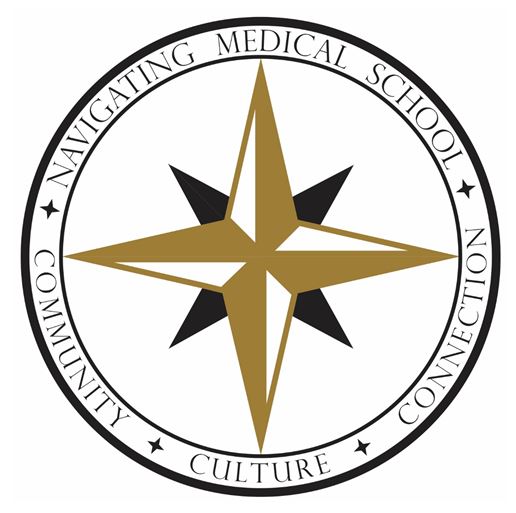Established in 2016, the Navigating Medical School (NMS) Program is a student-led near peer-mentoring program that aims to guide junior medical students in their academic, professional, and career development. The NMS curriculum complements the 4-year medical school curriculum, offering students day-to-day and year-to-year mentoring from a team of near peers, faculty, and friends at key times during medical training.
NMS consists of three complementary, integrated programs that aim to:
- Foster peer connectedness
- Provide positive role models as a source of advice and support throughout each student’s formative years in medical school
- Assist students in identifying faculty mentors
- Provide structured leadership development to upper class student guides and executive team members.
NMS threads several core concepts through all three of its programs. Student well-being is emphasized in an individualized manner, with the belief that academic success and personal wellness go hand-in-hand. The program aims to reduce student burnout by fostering greater student connectedness and self-awareness. We further encourage junior students to reflect upon their experiences and set personal goals with insight into their own professional identity formation. Lastly, we introduce concepts of self-directed learning and how students can integrate daily techniques to enhance their understanding of themselves, their peers, and their patients.
Programs
Explore the three integrative programs that comprise NMS, creating a comprehensive navigation team for each student.The Seminar Series serves to meets students where they are at critical timepoints during their four years in school. Near-peers who have just been through these transitions provide insight, advice, and strategies to maintain success. The NMS leadership actively considers student feedback to adjust the curriculum to meet the needs of each class of students. Seminar formats vary among traditional lecture style, panel Q+A, small group, and hybrid.
Current yearly seminars include:
MS1:
- Summer Planning: introductory lecture to summer options followed by a panel Q+A of upperclass students with diverse summer experiences
MS2:
- Step 1, part 1: early advice on resource selection and time management, featuring small-group breakout sessions with upperclassmen, divided by predominant learning style
- Step 1, part 2: creating a schedule for Step 1 dedicated study block that works for the individual student
- Step 1 office hours: walk-in hours to meet one-on-one with a peer mentor for informal advice and feedback on study plans
- Intro to the Clinical Years: how to succeed and thrive in third year, with breakout sessions for specific advice on students’ first rotation
MS3:
- Fourth Year Scheduling: general and specialty-specific advice on creating an effective schedule to achieve your goals
- Making the Match: small groups divided by specialty, led by matched fourth-years, with informal advice about rotations, aways, letters, ERAS, choosing programs, interviews, etc.
The Guides Program provides formal near peer mentoring. Junior students select an upperclass Guide who aligns with his or her personal and/or career goals. An emphasis is placed on mutual communication and connectedness. Guide groups meet in person once per month using a semi-structured curriculum that highlights such topics as self-directed learning and professional identity formation.
Additional informal Guide gatherings during the year offer opportunities for students to network and mix with peers and upperclass colleagues. Throughout the program, guides provide a source of individualized support and advice as each student navigates his or her own medical school journey.
The Networking Program is the most recent program to be integrated into the NMS structure. NMS is currently designing an online social media platform that seeks to connect students with peers, faculty, and alumni to both create, foster, and grow mentoring opportunities that will help support students in their academic, professional, and career development during medical school. All programs are optional attendance and participation.
Seminar attendance is typically 60-70% of a given class, and 30-70% of students have opted to participate in the Guides program. 80% of junior student participants have reported that NMS has had a positive impact on their medical school experience.
A first-year medical student commented, “I often feel ‘lost’ so their guidance and advice is invaluable.” Another added that the near peer guides are, “really helpful because they have just been in your shoes and have the most updated information. They also feel more like peers, so it is less intimidating to talk with them.”

